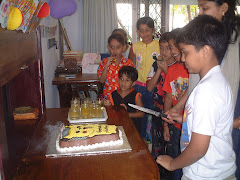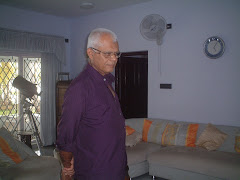The concept of Script is a basic tenet of Transactional
Analysis. Claude Steiner takes the study of scripts further than Eric Berne
(father of Transactional Analysis and his teacher) ever did. Steiner’s loyalty
and devotion to Berne having been professed extensively
in this lucid, path-breaking volume, he interestingly also goes on to highlight
how a deeper knowledge of scripts could have prolonged Berne ’s
own life. According to Steiner, Berne had injunctions
(Parental suggestions) which stood in his way to a rigorous exploration of
scripts and strokes. Steiner perhaps wants to right a wrong even if it is too
late for his mentor friend. In this way, he may have intended this to be a
cathartic piece.
This book provides an illuminating outline of the key
concepts of TA so that the lay person is not left stumped by strange terms.
Having thus laid a firm foundation, Steiner then builds on this further to
highlight his own unique contributions to scripting – the triad of the
Lovelessness, Mindlessness, and Joylessness scripts. He delves into their
causes. His approach is always practical and steadfastly aimed at curing
pathology. In the end, he does not shy away from offering crisp, well-crafted,
creative solutions. He enlightens us as to how scripting leads to powerlessness
and takes us away from awareness, intimacy and spontaneity. He stresses the
advantage of co-operation over competition and this is a refreshing view from a
Western intellectual given the overt importance accorded to individuality in
Western culture.
He warns extensively against the pitfall of playing “Rescue”
in both therapeutic and non-therapeutic relationships. His portrayal of an
ideal therapist as one who brings a solid Adult, nurturing Parent and cheerful
Child to therapy is appropriate and heartening. He also enlists Command,
Permission, Protection, Fun and Potency as significant tools in a competent
therapist’s armour. His suggestions on therapy are astute observations based on
ground reality and are therefore priceless.
The short section on Sex-role scripting in men and women by
Hogie Wyckoff unfortunately feels archaic, at times offensive, and often not in
keeping with the modern and enlightened tone of the rest of the book. Steiner’s
own inputs on liberation of men and women from stereotyping and sex-role
scripting however stand the test of time and enrich the debate on gender
equality immensely. His contribution to the upbringing of children is also
valuable and gives a thrust in the right direction to a progressive and
compassionate approach to child-rearing aimed at creating adults who are the
epitome of autonomy – TA’s ultimate ideal and goal.







No comments:
Post a Comment